In 1728, a Chinese general received a letter offering to let him lead an imminent rebellion to overthrow the Emperor. But the messenger was deluded, the author was operating alone, the general was loyal, and there was no rebellion. The whole situation was the result of misunderstanding piled upon misunderstanding. Unraveling the mess took months, and the bizarre truth behind the letter was even stranger than its contents. It’s a wild adventure hook!
This post is brought to you by beloved Patreon backer Justin Moor. Thanks for helping keep the lights on! If you want to help keep this blog going alongside Justin, head over to the Patreon page – and thank you!
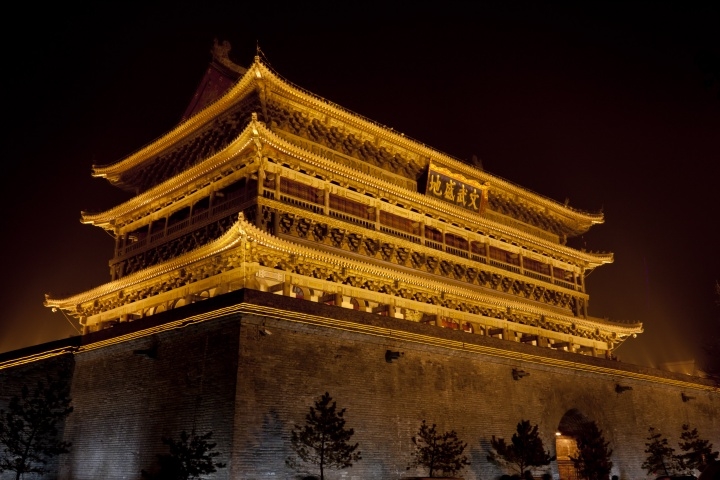
We start with the recipient of this letter. General Yue Zhongqi was the commander in chief of the Chinese army along the western border. He was descended from the great Chinese military hero Yue Fei, who led a 12th-century war against a kingdom ruled by a non-Chinese ethnic group called the Jurchens. This ancestry was problematic for General Yue Zongqi. His boss, the Yongzheng Emperor, was a Manchu, a member of an ethnic group that claimed descent from the Jurchens and conquered China eighty years before we start our story.
General Yue was loyal to his Manchu superiors. But his political rivals never stopped trying to convince the Yongzheng Emperor that General Yue was planning to follow his ancestor’s lead and attack the Manchu government. Some of the peasants had the same idea. In his previous posting, General Yue had to arrest a man who was preaching that the General was about to lead an anti-Manchu revolt. (The man had been sick with malaria for a month and was out of his mind.) The letters between General Yue and the Yongzheng Emperor are an endless dance of “Please, I’m so sorry, I promise I’m loyal,” and “I know you’re loyal; I’m so sorry you have to put up with this.”
So when a stranger approached General Yue’s sedan chair and gave him a letter addressed to “the Commander-in-Chief deputed by Heaven,” Yue knew this was going to be trouble. Note that it’s not “the Commander-in-Chief of the Western Armies” or “the Governor-General of Yangtze and Sichuan.” No, the letter was written by someone who apparently believed that Yue was chosen by Heaven for some grander purpose. If word of this got back to his enemies at court, they’d cry treason until their throats bled. General Yue had the messenger arrested and retreated to a private room to read the letter.
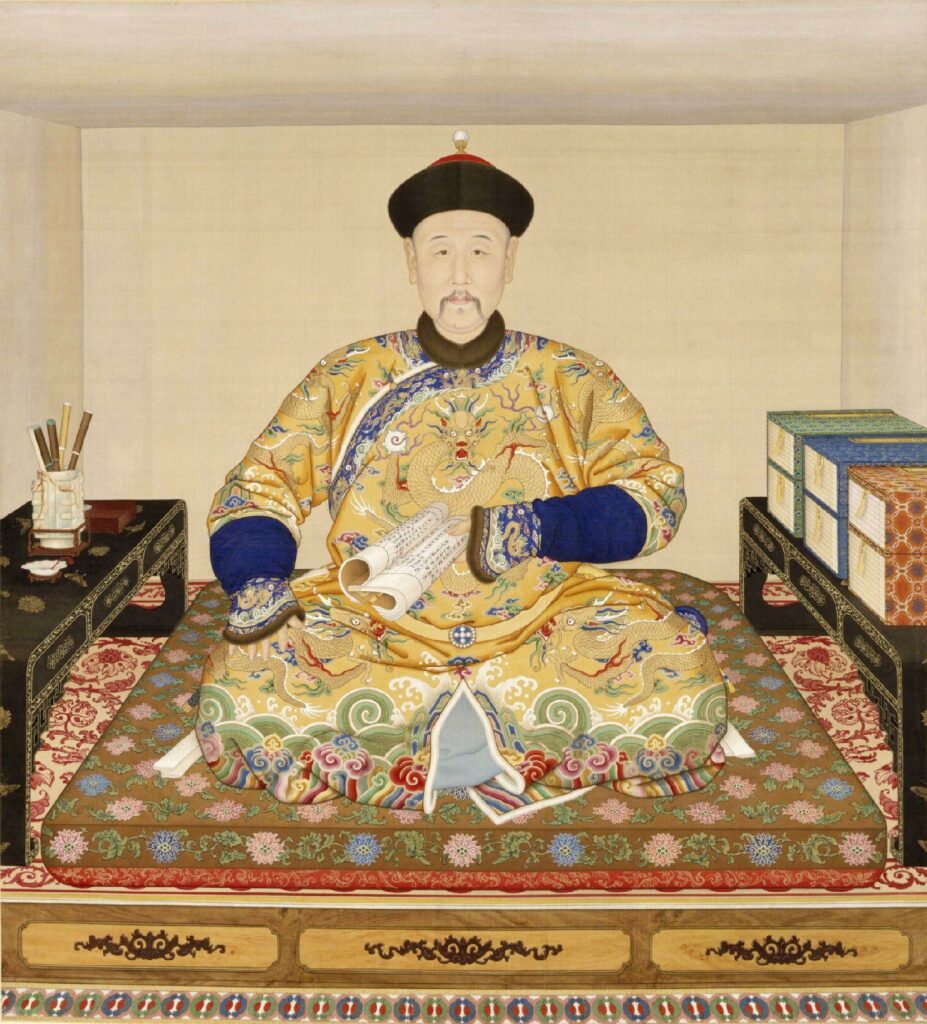
The central thesis of the letter was that Yue was obliged by every moral principle of Chinese philosophy to follow his ancestor’s example and fight the Manchus. It referenced signs and portents that the time for revolution was at hand. It even promised that six provinces stood ready to rise up at General Yue’s command. The letter was long and detailed, full of historical observations, classical allusions, and rhetorical flourishes that suggested the author was a widely-read scholar. He called himself “Summer Calm, the Leaderless Wanderer of the Southern Seas” and called the letter-carrier “Zhang the Luminous”.
This letter should have been impossible. Under the then-current system, the purpose of scholarship was to use standard principles to arrive at the same conclusions as previous scholars. You studied classical texts so you could regurgitate them for the standardized tests that determined who got coveted positions in the Imperial bureaucracy. Everyone studied the same works in the same way. Advanced scholarship meant you were familiar with even obscure books in the canon (which this author clearly was), and knew how to contextualize them in the orthodox manner (which this author clearly didn’t). It shouldn’t have been possible for someone this well-read to be this wrong.
General Yue had to get to the bottom of this paradox. He summoned a senior administrator – someone whose word was unimpeachable – and placed him in an adjacent room. The administrator was to put everything he heard in a private letter to the Emperor so no one could accuse Yue of plotting with the messenger. Then General Yue had the prisoner, Zhang the Luminous, brought before him to drink tea and chat.
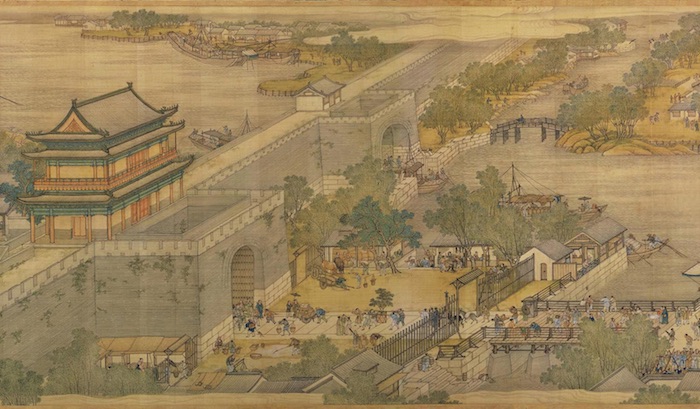
Zhang was cagey. He refused to say where his master, Summer Calm, lived, except that it was near the sea and he was protected by his many followers. Summer Calm addressed his letter to General Yue because he’d heard that Yue and the Emperor were at loggerheads. Bad conditions in southern China and astronomical portents proved the time was right for rebellion. Yue pushed back. He and the Emperor were on good terms. Conditions in Southern China were fine, and there were no portents. Can Zhang prove this isn’t a trap by one of Yue’s enemies, to trick him into seeming to betray the Emperor? Zhang revealed nothing more, even under torture.
Next Yue tried a different approach. He summoned a trusted magistrate, Li Yuan, and dressed him as one of Yue’s household retainers. He installed Li in a room with wine and fur blankets (it was a cold autumn), and transferred Zhang there. The two spent a day in comfort and ease. Li praised General Yue’s character. He assured Zhang that Yue was just making sure Zhang was legit. The General wouldn’t risk his neck committing treason unless he were confident in the stalwart nature of his co-conspirators. Zhang opened up to this kindness. When Yue summoned Zhang again and repeated Li’s story, Zhang started talking. That should have been a clue that all wasn’t as it seemed.
Summer Calm’s real name was Zeng Jing, and he lived not by the sea but in a remote, mountainous part of Hunan Province. Zhang the Luminous was really Zhang Xi of the same place. He revealed the names and addresses of four Hunanese co-conspirators, all of whom were men of almost superheroic knowledge and ability. Four more named co-conspirators lived near the mouth of the Yangtze. The latter four were acolytes of a dead scholar that Zeng Jing (Summer Calm) was a fan of. As for the six provinces that stood ready to rise at a word, Zhang didn’t know how his master would convey the word, but it would definitely happen. General Yue, of course, needed to know all this now that he was joining the revolution.
General Yue had everything he needed. He wrote an urgent letter to the Emperor listing the names and addresses of the master Zeng Jing, Zhang Xi’s family, the four Hunanese conspirators, and the four Yangtze conspirators. Very quickly, all were in custody. But these plotters weren’t quite as promised.
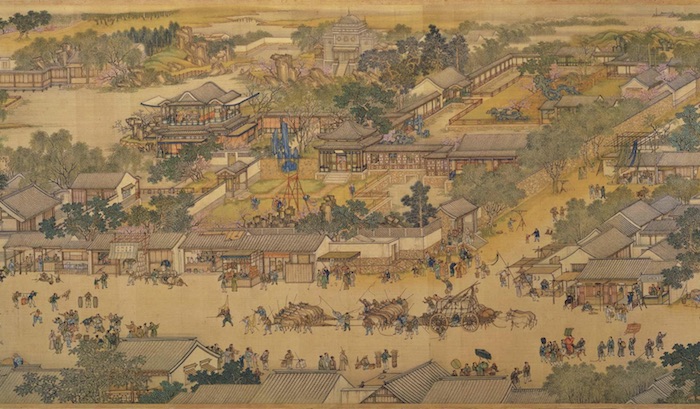
Only the master, Zeng Jing, seemed aware he might be arrested. When troops burst into his house, he cried that he’d die before he was captured. But his resolve seemed to fail him, and he did not attempt suicide. Those frisking him found notes in his clothes describing his accomplishments. This was a traditional way for men who expected to die to ensure they’d be recognized in the Underworld.
Everyone else seemed shocked to be arrested. When presented with their crimes, the general response was, “Zhang Xi? That nobody? He said I did what? Please take me to him so I can beat him up for you!”
The four Yangtze conspirators were normal people who made the mistake of being kind to a traveling mediocre student of the classics. Zhang Xi arrived in their towns looking for works by the scholar Lü Liuliang, who’d died some forty years earlier. These four were all students of Lü Liuliang. Bound by the obligations of courtesy and hospitality, they let Zhang Xi stay in their homes and peruse their libraries. A few gave him a few days of instruction. One invited him to a birthday party. None of them thought much of Zhang Xi: his questions about the material were shallow, and his education was lacking. But they made the necessary introductions and pawned him off on one another until it was time for Zhang to go home.
Zhang Xi was sad and lonely enough that he mistook these common courtesies for genuine friendship. Worse, because his master told him that Lü Liuliang was an anti-Manchu scholar (which was sort of true; more on that later), Zhang simply assumed all these students of Lü were co-conspirators and allies even though he never brought up the subject. You remember that guy in high school everyone picked on, so the first time someone showed him basic human kindness, he concluded they were best friends? Zhang Xi was that guy. That’s why being nice was such an effective interrogation strategy by General Yue: a fur blanket and some wine were enough to convince Zhang that the General was a blood brother.
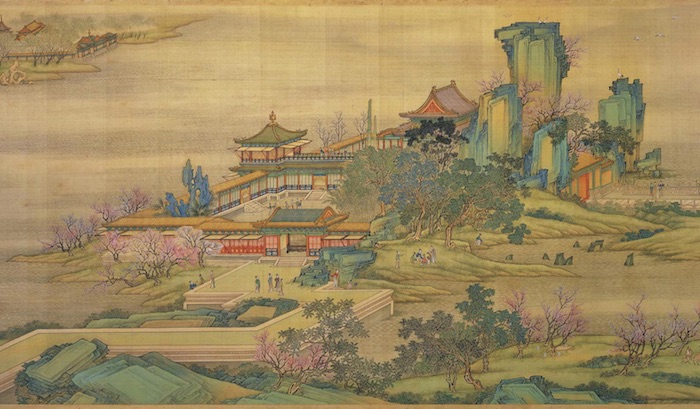
Something similar was going on with the master, Zeng Jing, and his relationship with his alleged co-conspirators in Hunan Province. Zeng Jing grew up in the only house with a library for days around. Growing up, he had no one to talk to about what he was reading. He enrolled in provincial school for a time, but lacked the context to understand what he was being taught. When he learned the teacher had once read a classical text on warfare, Zeng concluded the teacher was an expert on tactics. Indeed, that teacher was one of the supposed Hunanese conspirators, and like the rest it turned out he had no knowledge of Zeng Jing’s plans. Zeng briefly held a literary degree, but it was stripped from him when he failed a re-examination. He’d assembled a vast library in his remote, mountainous corner of the country. But even though he read widely, he didn’t know enough about the outside world to make sense of what he was reading. His misunderstandings compounded upon one another until he became convinced divine signs pointed to an imminent uprising, which he alone had the insight to set off.
Zhang Xi, from an estate a few villages away, grew up wanting to be a scholar. Zeng Jing was willing to give Zhang the time of day, and Zhang had no other options. So, consistent with his sad sack nature, Zhang became a devoted follower of Zeng. There was no one around to tell Zhang, “This guy has some kooky ideas. There is no rebellion brewing. He has no team of secret superheroes. He’s just a guy who’s read a lot of books and misunderstood most of them.” Zhang’s credulity bolstered Zeng’s confidence in his ideas. Zeng’s enthusiasm fed Zhang’s devotion. The two imagined they were on the precipice of something great. Zeng just needed a few more works by the scholar Lü Liuliang to make sense of it. So he sent Zhang down to the mouth of the Yangtze where Lü had lived to fetch them.
Lü Liuliang’s influence on Zeng Jing was hard to anticipate. Lü was a scholar of some minor note. He was best known for his study guides that helped aspirants to the bureaucracy pass their standardized tests. He was privately anti-Manchu, but he mostly kept it to himself. These sentiments had a subtle influence on his poetry, but none on his study guides. Almost anyone who’d heard of Lü Liuliang knew him as an orthodox thinker, not a radical subversive. But when Zhang Xi met with Lü scholars in the Yangtze Delta, he uncritically assumed they, like his master, were virulent anti-Manchus.

Image credit: そらみみ. Released under a CC BY-SA 4.0 license.
Zhang Xi and Zeng Jing were hauled to Beijing for sentencing. To everyone’s surprise, the Yongzheng Emperor pardoned them and personally oversaw their re-education. I don’t mean that in a euphemistic way, like 20th century communist ‘re-education’ camps. I mean they actually received a good education in the capital so they would gain the context they needed to understand their errors. The Emperor organized his correspondence with Zeng into a book called A Record of How True Virtue Led to an Awakening From Delusion. Tens of thousands of copies were printed and sent all over China for students to read, so they could avoid the same mistakes that befell Zeng and Zhang.
(General Yue was livid about Awakening From Delusion getting published. In the letters, Zeng Jing says many things that cast doubt on Yue’s loyalty, and the Emperor never bothers to correct him.)
It might seem to us that this is the end. The ‘conspiracy’ was just two bumpkins without an army. But this non-uprising spurred the Yongzheng Emperor into a years-long crusade to suppress the teachings of Lü Liuliang. Zhang and Zeng got off scot free, but many of the scholars of Lü Liuliang that Zhang identified falsely as co-conspirators were executed or died in custody. The Emperor had unrepentant fans of Lü Liuliang’s study guides enslaved or killed, and did everything possible to obliterate Lü’s memory. This generated considerable pushback from China’s administrative class, much of which saw Yongzheng’s actions as imperial overreach.
The push and pull between the Emperor and the bureaucracy over Lü Liuliang was never resolved. The Yongzheng Emperor died suddenly in 1735, seven years after Zhang Xi delivered his message. Yongzheng’s successor found the whole affair embarrassing. One of his first acts as Emperor was to recall all copies of Awakening From Delusion and order Zhang Xi and Zeng Jing killed.
At your table, your PCs may be asked to investigate a letter modeled on the one Zhang Xi delivered to General Yue. The party will have to show kindness to your fictional letter-carrier to get her to open up and hear her bizarre story. Then, when the PCs talk to the NPCs she names, those NPCs can all be just as confused as the real historical people Zhang Xi named. Keep your NPC based on the master Zeng Jing just as harmless as the real-world figure. But then, right when it seems this whole affair is a nothing burger, it opens a window into a problem the PCs now have to deal with. Maybe your Zeng Jing analogue is harmless, but the author who influenced him is shown to have been a member of an evil cult no one knew about. Or maybe your Zeng Jin analogue was responding to false rumors based on some completely separate (but very real) threat. The whole story is weird, unusual, and very different from what your players are probably used to!
–
Source: Treason by the Book by Jonathan Spence (2001)






